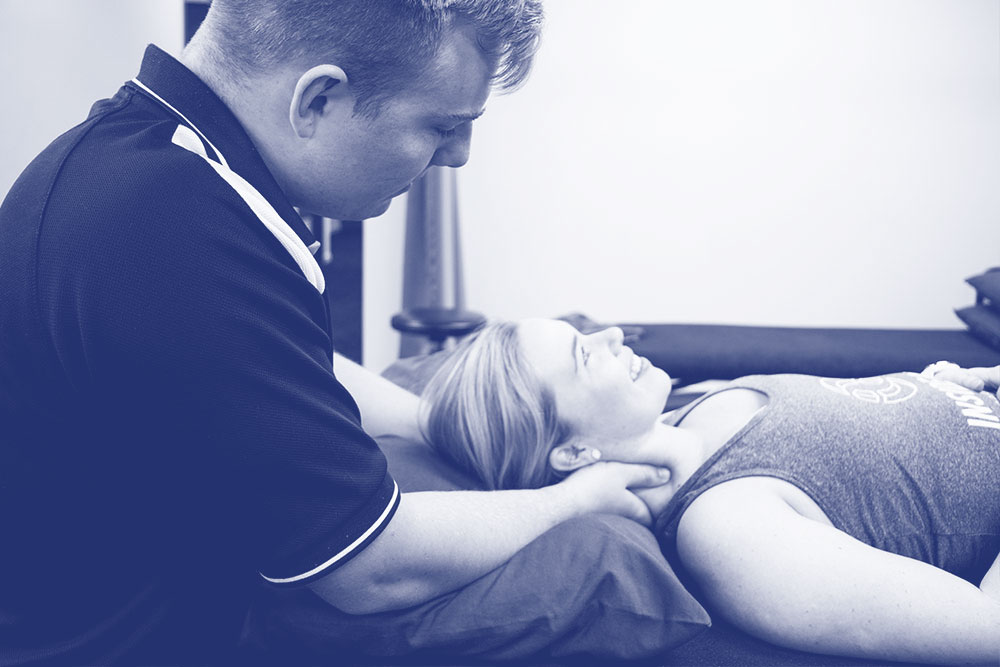

The recovery process and what we can do to help you get better.
Whiplash is a common injury often resulting in pain and significant disability. For more information on what we can do to help, read the great article below written by one of our fantastic physios, Joan Kelly.
Whiplash describes an acceleration-deceleration force to the neck that most commonly occurs during a motor-vehicle accident. Sometimes this force causes painful injuries to the muscles, ligaments and joints of the neck and surrounding areas. People who experience whiplash injury can be affected in very different ways. Whilst neck pain and stiffness are most common, some people also experience headaches, arm pain, dizziness, fatigue, distress, irritability, difficulty concentrating, sleep disturbances, blurred vision and memory problems (to name but a few!). The nature, number, severity and onset of these symptoms are highly variable, as is the timing and extent of recovery. For example, many people experience rapid recovery with minimal help from a health professional, whilst others find their symptoms never completely resolve.
Most physiotherapists are very good at performing screening tests to rule out fracture, determining injury severity, identifying limitations in day-to-day activities, assessing joint movement, and investigating issues with neck muscle strength and control. As such, physios often provide useful information on the recovery process, advice about how to maintain usual activity levels, and a combination of hands-on treatment and exercise to improve muscle function and neck movement. Unfortunately these approaches are sometimes not effective.
Whilst there is still a lot of work to be done to determine exactly how to best treat people with whiplash, a combination of thorough physical, psychological and medical care is recommended. At Allsports, we’ve combined our clinical experience and additional training in managing whiplash with the latest evidence from research trials to provide better-targeted management. Depending on your presentation, this may include:
• Early screening to determine your likely recovery trajectory. This informs the type and intensity of management you may need,
• Investigation of balance and coordination issues such as dizziness, altered vision, fatigue and problems concentrating. Individualised sensorimotor and proprioceptive exercises can help improve these symptoms,
• Assessment of common psychological symptoms like stress, anxiety, depression and clinical manifestations of these such as difficulty sleeping. We can provide management strategies if symptoms are mild, or link you with another health professional such as a psychologist, and
• Avoiding treatments that used to be common, but we now know do not help! Like neck collars, acupuncture, activity reduction, steroid injections…
Do you have a whiplash injury?
Book in to see Joan Kelly at the Southport clinic by phoning 07 5528 2666. Joan is a physiotherapist who helps people with problems that persist. She remains atop the latest whiplash research by undertaking a doctorate in the field and providing management to people as part of Griffith University’s whiplash treatment trials.
